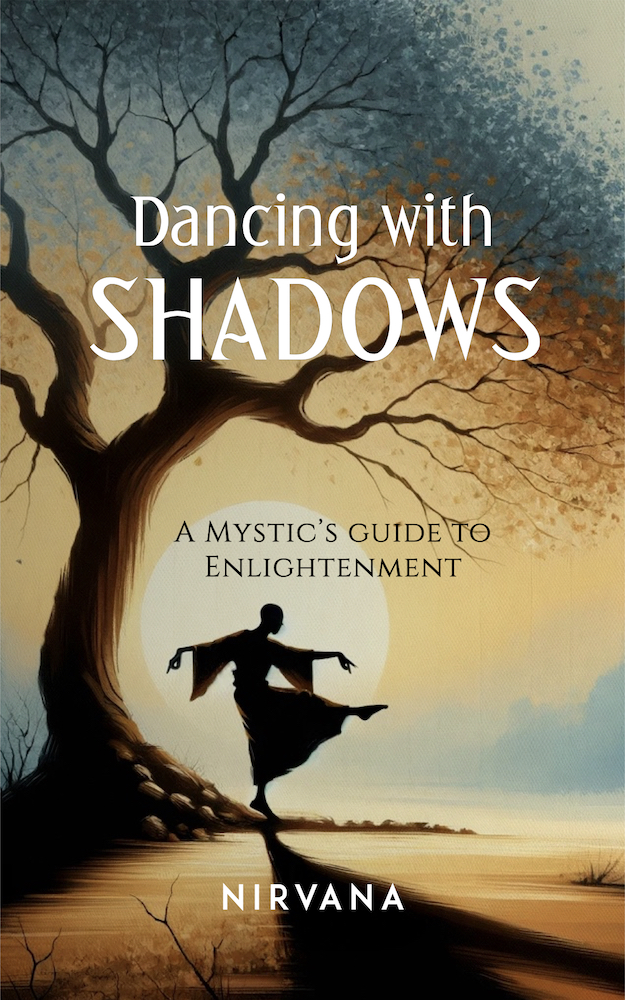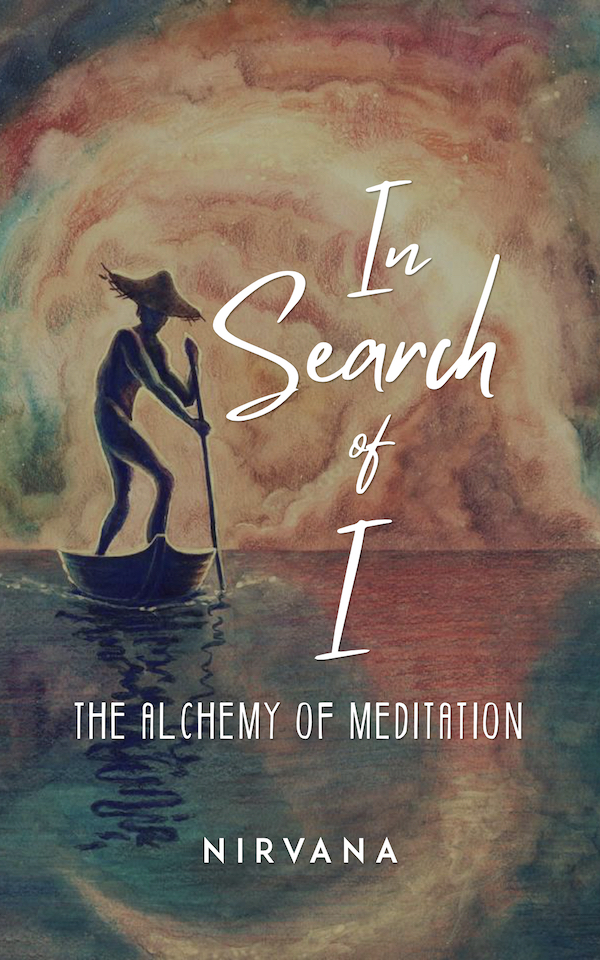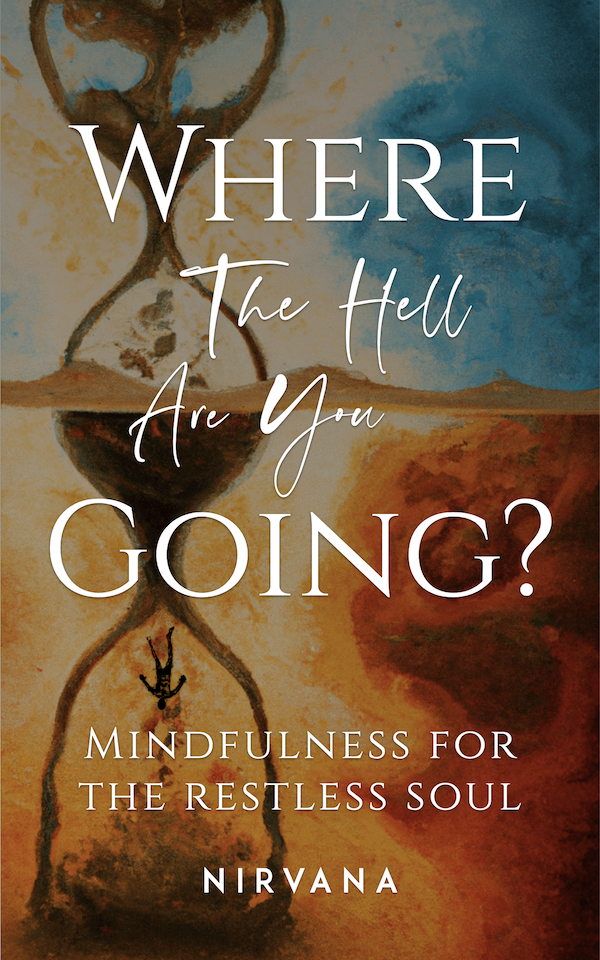
Nirvana’s Guide to Meditation
What exactly is meditation? How to meditate? The art of doing nothing!
Absolutely nothing has passed the test of time like meditation. If it didn’t offer any benefits, it wouldn’t have become such an integral part of human consciousness for as long as it has. There is no doubt that meditation works; yet, why do people find it so hard to meditate? What makes meditation so challenging, and how exactly does one meditate? Let’s explore the actual mechanism of meditation to unlock its secrets.
First off – the word meditation: What exactly does it mean?
Actually, it doesn’t mean anything – it’s just another word we use to designate something we don’t fully understand. Consider this: The word ‘meditation’ literally means ‘to ponder.’ Well, isn’t pondering something we do almost all the time? If pondering is meditation, then everyone would be meditating, but we know this isn’t true.
In fact, there is no word in the English language that can precisely describe the actual practice of meditation. ‘Meditation’ is simply the word that comes closest to describing the art of meditation, but it isn’t the same. If the ocean represents the actual practice of meditation, then the word ‘meditation’ is merely the shore. Everyone who has ever spoken about meditation has only spoken about the shore. The actual ocean still remains a mystery.

This is one of the main reasons why meditation is difficult. We cling to the word ‘meditation’ and forget that what we’re trying to practice is something else altogether. The first step in learning how to meditate is to drop the attachment to the word ‘meditation.’ So, the next time you sit to meditate, just remember that you are not “in meditation.”
The second step in learning how to meditate is to learn how to let go of the idea of doing. After dropping the word ‘meditation,’ you have to go a step further and drop ‘doing’ as well. Meditation is not another activity to add to your already busy schedule. Meditation is not something you do; rather, it is something you allow to happen.
The importance of knowing the difference between doing and allowing cannot be emphasized enough. If you think you are doing meditation, then you will always end up frustrated. The next time you tell someone, “I am going to meditate,” just remember that you have no clue about what you just said. Not knowing how to meditate is the best place to start your meditation journey. Recognizing that you don’t know is crucial.
Here are 10 golden rules to begin and continue your meditation:
1) Find a good meditation guide and teacher. Your teacher should have a significant personal experience with meditation. They need not be perfect but should be able to guide you beyond the basic “sit quietly, close your eyes, and watch your breath” phase.
2) Designate a specific place for your daily meditation practice, establish a strict schedule, and adhere to it diligently. Over time, both the place and the time will serve as anchors, reminding you of your meditation practice. It’s much easier to train your mind and body to meditate with a consistent and regular routine.
3) Choose a comfortable meditation posture. Sitting cross-legged on the floor is fine if that suits you, or you can opt for a chair with a backrest. The posture is not of utmost concern to the essence of meditation, so don’t stress about not being able to sit in the lotus position.
4) Select a simple and easy-to-follow meditation technique, such as watching the breath, mirror gazing, or candlelight focusing. Don’t overemphasize finding the perfect technique. Meditation is 99% about you and 1% about the technique. Any technique can be effective if you’re willing to engage with it sincerely.
5) The ideal duration for a meditation session is between 30 to 60 minutes. Initially, sitting for 30 minutes might be challenging, but with some determination, you can overcome the initial discomfort. Remember, meditation requires more effort than watching movies. If you expect immediate relaxation from meditation, you might be disappointed. Meditation is not a sprint; it’s an ultra-marathon.
6) Make meditation your top priority. If it’s not the most important aspect of your life, you might give up eventually. Find ways to stay connected with your meditation practice, such as reading books, following teachers, joining communities, and attending retreats.
7) Have fun with your meditation practice. Despite its challenges, meditation doesn’t have to be tedious. It’s an incredible adventure and possibly the greatest one, as it involves exploring the depths of your being.
8) Understand that meditation is a battle against your mind, which may never fully support your practice. The critical thought to disregard is, “My meditation isn’t working.” Your mind will invent countless reasons to convince you that meditation is futile. Do not succumb to these thoughts.
9) Embrace a bit of selfishness to succeed in meditation. It’s one of the few activities entirely focused on your wellbeing, happiness, and transformation. Concern over others’ opinions can hinder your ability to meditate effectively.
10) Set the highest goal in meditation: self-realization or enlightenment. The journey is what matters, not necessarily reaching the destination. Relaxation, peace of mind, awareness, intelligence, clarity, and confidence are valuable byproducts, but they should not be your primary goal. Aim for the highest, and appreciate everything you achieve along the way as a bonus.
Meditation Books By Nirvana
Nirvana’s Intense Meditations
Nirvana Meditations are 45-minute intense practice sessions designed to harmonize focus, movement, and stillness, creating a unique and transformative meditative experience. The sessions, synchronized with music, are structured to guide you through periods of rest and movement, enhancing awareness and aiding the inward journey. This technique helps you to maintain peak focus and awareness throughout the session, dramatically improving upon traditional sitting meditations.
Dance of Life (Tandava) Meditation
![]()
45-Minute Meditation Session: Awareness, Intense Movement, and Stillness.
Session Overview:
Total Duration: 45 Minutes
Initial Stillness: 5 Minutes
Three Dancing Cycles: Each includes 2 minutes of dancing followed by 1 minute of sitting in stillness.
First Cycle: Slow waving movements.
Second Cycle: Intensified movements.
Third Cycle: Totally unrestrained movement.
Concluding Stillness: 15 Minutes
Preparation:
Find a quiet, comfortable space where you will not be interrupted.
Sit in a comfortable, upright position at the center of a space large enough to move around.
Meditation Instructions:
Initial Centering (5 Minutes)
Begin by closing your eyes. Take three deep breaths to relax and signal your body to enter a state of calm.
Sit still, focusing your awareness on your breath. Notice the sensation of the air entering and exiting your nostrils, or the rise and fall of your chest.
First Dancing Cycle: Slow Waving Movements (9 Minutes Total)
Dancing (2 Minutes): Stand and start with slow, flowing, waving movements of your arms and body, as if moving through water. Allow yourself to be carried by the rhythm of your breath.
Stillness (1 Minute): Sit down comfortably, close your eyes, and return your focus to your breath. Observe the sensations in your body, embracing the calmness.
Repeat this cycle two more times.
Second Dancing Cycle: Intensified Movements (9 Minutes Total)
Dancing (2 Minutes): Intensify your movements, incorporating more of your body. Move with energy and fluidity, letting go of inhibitions.
Stillness (1 Minute): Return to a seated position, closing your eyes, and focus on your breath. Allow the energy to settle, deepening your state of relaxation.
Repeat this cycle two more times.
Third Dancing Cycle: Totally Unrestrained Movement (9 Minutes Total)
Dancing (2 Minutes): Let go completely, moving your body in any way you wish. Jump, twist, shake — express yourself freely and unrestrainedly.
Stillness (1 Minute): Sit down, close your eyes, and reconnect with your breath. Notice the freedom and space created within.
Repeat this cycle two more times.
Concluding Stillness (15 Minutes)
To conclude, sit in stillness, focusing deeply on your breath. Allow yourself to explore the inner silence, connecting with your primordial nature.
Let thoughts come and go without attachment, finding peace in the present moment.
Closing:
Slowly open your eyes and take a few deep breaths. Stretch gently if needed, acknowledging the journey you’ve just undertaken.
Reflect on the experience of merging movement with meditation, and how it allowed you to connect with your deeper, primordial self.
Dance of Life Meditation Music
Rhythm of life (Taranga) Meditation
![]()
45-Minute Meditation Session: Focus, Movement, Stillness, and Feeling
Session Overview:
Total Duration: 45 Minutes
Initial Stillness: 5 Minutes
Three Movement Cycles:
Each cycle includes a 30-second movement followed by 2.5 minutes of stillness while listening to pleasant instrumental music.
Movements: Head Shake, Head Rotation, Upper Body Movement.
Concluding Stillness: 15 Minutes
Preparation:
Choose a quiet, comfortable space where you won’t be interrupted.
Sit in a comfortable, upright position on a cushion or chair.
Meditation Instructions:
Initial Centering (5 Minutes)
Begin by closing your eyes. Take three deep breaths to relax and signal your body to enter a state of calm. Connect with the music and get in touch with your inner emotions.
Continue to sit still, focusing your awareness on your breath. Notice the sensation of the air entering and exiting your nostrils, or the rise and fall of your chest or abdomen, without attempting to alter your breathing pattern. Gently be aware of your emotions.
First Movement Cycle: Head Shake (9 Minutes Total)
Head Shake (30 Seconds): Gently move your head from left to right, while keeping your awareness on the breath.
Stillness (2.5 Minutes): Return to stillness, focusing on your breath while listening to the music and connecting with your emotions.
Repeat this cycle two more times.
Second Movement Cycle: Head Rotation (9 Minutes Total)
Head Rotation (30 Seconds): Slowly rotate your head in a circular motion, while keeping your awareness on the breath.
Stillness (2.5 Minutes): Resume stillness, maintaining breath awareness while listening to the music and connecting with your emotions.
Repeat this cycle two more times.
Third Movement Cycle: Upper Body Rotation (9 Minutes Total)
Upper Body Rotation (30 Seconds): Rotate your upper body from left to right, while keeping your awareness on the breath.
Stillness (2.5 Minutes): Settle back into stillness, concentrating on your breathing while listening to the music and connecting with your emotions.
Repeat this cycle two more times.
Concluding Stillness (15 Minutes)
After completing the movement cycles, engage in a final phase of stillness. Deepen your focus on the breath, allowing your mind to settle into a state of deeper meditation.
Let thoughts come and go without attachment, returning your focus to your breath each time while gently listening to the music and connecting with your emotions.
Closing:
Slowly open your eyes and take a moment to observe how you feel physically, mentally, and emotionally.
Conclude the session with a few deep breaths, stretching gently if desired.
Rhythm of Life Meditation Music
Sounds of Nature (Sushama) Meditation
![]()
45-Minute Meditation Session: Focus, Movement, Stillness, and Listening
Session Overview:
Total Duration: 45 Minutes
Initial Stillness: 5 Minutes
Three Movement Cycles:
Each cycle includes a 30-second movement followed by 2.5 minutes of stillness while listening to pleasant nature sounds.
Movements: Head Shake, Head Rotation, Upper Body Movement.
Concluding Stillness: 15 Minutes
Preparation:
Choose a quiet, comfortable space where you won’t be interrupted.
Sit in a comfortable, upright position on a cushion or chair.
Meditation Instructions:
Initial Centering (5 Minutes)
Begin by closing your eyes. Take three deep breaths to relax and signal your body to enter a state of calm. Connect with the sound of nature and be immersed in the experience.
Continue to sit still, focusing your awareness on your breath. Notice the sensation of the air entering and exiting your nostrils, or the rise and fall of your chest or abdomen, without attempting to alter your breathing pattern. Gently be aware of the sounds of nature.
First Movement Cycle: Head Shake (9 Minutes Total)
Head Shake (30 Seconds): Move your head from left to right, while keeping your awareness on the breath.
Stillness (2.5 Minutes): Return to stillness, focusing on your breath while listening to the sounds of nature.
Repeat this cycle two more times.
Second Movement Cycle: Head Rotation (9 Minutes Total)
Head Rotation (30 Seconds): Slowly rotate your head in a circular motion, while keeping your awareness on the breath.
Stillness (2.5 Minutes): Resume stillness, maintaining breath awareness while listening to the sounds of nature.
Repeat this cycle two more times.
Third Movement Cycle: Upper Body Rotation (9 Minutes Total)
Upper Body Rotation (30 Seconds): Rotate your upper body from left to right, while keeping your awareness on the breath.
Stillness (2.5 Minutes): Settle back into stillness, concentrating on your breathing while listening to the sounds of nature.
Repeat this cycle two more times.
Concluding Stillness (15 Minutes)
After completing the movement cycles, engage in a final phase of stillness. Deepen your focus on the breath, allowing your mind to settle into a state of deeper meditation.
Let thoughts come and go without attachment, returning your focus to your breath each time while gently listening to the sounds of nature.
Closing:
Slowly open your eyes and take a moment to observe how you feel physically and mentally.
Conclude the session with a few deep breaths, stretching gently if desired.
Sounds of Nature Meditation Music
Pure Being (Nirguna) Meditation
![]()
45-Minute Meditation Session: Focus, Movement, and Stillness
Session Overview:
Total Duration: 45 Minutes
Initial Stillness: 5 Minutes
Three Movement Cycles:
Each cycle includes a 30-second movement followed by 2.5 minutes of stillness.
Movements: Head Shake, Head Rotation, Upper Body Movement.
Concluding Stillness: 15 Minutes
Preparation:
Choose a quiet, comfortable space where you won’t be interrupted.
Sit in a comfortable, upright position on a cushion or chair.
Meditation Instructions:
Initial Centering (5 Minutes)
Begin by closing your eyes. Take three deep breaths to relax and signal your body to enter a state of calm.
Continue to sit still, focusing your awareness on your breath. Notice the sensation of the air entering and exiting your nostrils, or the rise and fall of your chest or abdomen, without attempting to alter your breathing pattern.
First Movement Cycle: Head Shake (9 Minutes Total)
Head Shake (30 Seconds): Move your head from left to right, while keeping your awareness on the breath.
Stillness (2.5 Minutes): Return to stillness, focusing on your breath.
Repeat this cycle two more times.
Second Movement Cycle: Head Rotation (9 Minutes Total)
Head Rotation (30 Seconds): Slowly rotate your head in a circular motion, while keeping your awareness on the breath.
Stillness (2.5 Minutes): Resume stillness, maintaining breath awareness.
Repeat this cycle two more times.
Third Movement Cycle: Upper Body Rotation (9 Minutes Total)
Upper Body Rotation (30 Seconds): Rotate your upper body from left to right, while keeping your awareness on the breath.
Stillness (2.5 Minutes): Settle back into stillness, concentrating on your breathing.
Repeat this cycle two more times.
Concluding Stillness (15 Minutes)
After completing the movement cycles, engage in a final phase of stillness. Deepen your focus on the breath, allowing your mind to settle into a state of deeper meditation.
Let thoughts come and go without attachment, returning your focus to your breath each time.
Closing:
Slowly open your eyes and take a moment to observe how you feel physically and mentally.
Conclude the session with a few deep breaths, stretching gently if desired.
Pure Being Meditation Session
Sacred Sex (Tantra) Meditation
![]()
45-Minute Meditation Session: Awareness, Energetic Flow, and Intimacy
Session Overview:
Total Duration: 45 Minutes
Initial Connection: 5 Minutes
Three Intimacy Cycles: Each includes 2 minutes of rhythmic movement followed by 1 minute of sitting in shared stillness.
First Cycle: Gentle caressing movements.
Second Cycle: Passionate, flowing exchanges.
Third Cycle: Uninhibited, expressive interaction.
Concluding Intimacy: 15 Minutes
Preparation:
Find a quiet, comfortable, and private space where you will not be interrupted.
Sit facing your partner in a comfortable, upright position, close enough to touch but with space to move.
Ensure the space around you is fragrant, inviting and warm, possibly with cushions or soft mats on the floor.
Meditation Instructions:
Initial Connection (5 Minutes)
Begin by gazing softly into each other’s eyes, synchronizing your breaths. Take three deep breaths together to relax and signal your bodies to enter a state of mutual calm.
Maintain a gentle eye contact, focusing your awareness on the shared breath and the space between you.
First Intimacy Cycle: Gentle Caressing Movements (9 Minutes Total)
Movement (2 Minutes): Stand or sit closely, and start with gentle, caressing movements over each other’s arms, shoulders, and back, as if tracing waves of energy. Allow your movements to be guided by the rhythm of your shared breathing.
Stillness (1 Minute): Sit down facing each other, holding hands or touching palms, close your eyes, and return your focus to the synchronized breathing. Observe the sensations in your body, embracing the shared calmness.
Repeat this cycle two more times.
Second Intimacy Cycle: Passionate, Flowing Exchanges (9 Minutes Total)
Movement (2 Minutes): Increase the intensity of your movements, exploring each other’s bodies with respect and affection. Let your movements be fluid and expressive, communicating through touch.
Stillness (1 Minute): Return to sitting facing each other, close your eyes, and focus on your breath. Feel the warmth and energy circulating between you, deepening your connection.
Repeat this cycle two more times.
Third Intimacy Cycle: Uninhibited, Expressive Interaction (9 Minutes Total)
Movement (2 Minutes): Allow yourselves to express freely, moving in any way that feels natural and joyful. This can include embracing, rolling, or moving around each other, always maintaining a sense of mutual love and respect.
Stillness (1 Minute): Sit down, close your eyes, and reconnect with your breath, holding space for the other. Notice the openness and trust built through this expressive exchange. Pay attention to the changes in subtle body sensations.
Repeat this cycle two more times.
Concluding Intimacy (15 Minutes)
To conclude, sit in stillness, facing each other, focusing deeply on the shared breath. Become aware of the heightened sexual energy within. Explore the silence and connection that you’ve cultivated, reaching a state of oneness.
Let thoughts and sensations flow freely without attachment, finding peace in the present moment together.
Closing:
Slowly open your eyes, maintaining the gentle gaze with your partner, and share a moment of gratitude. Stretch gently if needed, and acknowledge the journey you’ve undertaken together.








